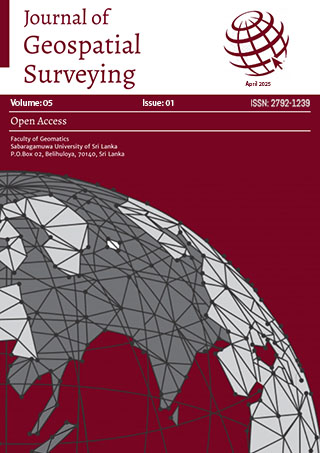
ISSN: 2792-1239
| Quick links |
|---|
| 1. Article Processing |
| 2. Open Access Policy |
| 3. Publication Ethics |
| 4. Errata and Retraction Policy |
| 5. Peer Review Process |
| 6. Managing Complaints |
Information
| 1. Article Processing |
|---|
|
All submitted articles will initially be subjected to editorial procedures, and if found to be suitable for publishing, they will be sent to reviewers for peer review. Authors are encouraged to suggest at least three potential reviewers, with full contact information including the current email address, who can review their article. However, it is not mandatory for the editor to send the article only to the reviewers referred by the author. It is at the discretion of the editor to send articles to any reviewer of his/ her choice. In most cases, all articles submitted will be processed within 20 - 30 days from the date of submission. |
2. Open Access Policy |
| This journal provides immediate open access to its content on the principle that making research freely available to the public supports a greater global exchange of knowledge. The copyright of all articles and illustrations published in the Journal is retained by the author(s) of the manuscript, and are licensed under a Creative Commons Attribution 4.0 International License - CC BY-NC 4.0. This license allows reusers to distribute, remix, adapt, and build upon the material in any medium or format for noncommercial purposes only, and only so long as attribution is given to the creator. | 3. Publication Ethics |
| The Journal of JGS adheres to the publication ethics as portrayed by the Committee on Publication Ethics (COPE - https://publicationethics.org/), and will apply for membership of this organization after 12 months of publishing. All articles submitted to the journal will be screened for any plagiarized content/similarity through the software 'Turnitin' (Turnitin 2021, LLC). The similarity to an individual text must always be less than 2% and the overall similarity of the manuscript is preferred to be less than 20%. However, an expert will review the similarity report before taking the final decision, as the manuscript could have a large number of sources, but the similarity to an individual source may be less than 2%. All issues that arise in publishing will be dealt according to COPE guidelines. The journal is also available on the Sabaragamuwa University of Sri Lanka website http:sab.ac.lk/geo/jgs | 4. Errata and Retraction Policy |
| In the case of significant errors, corrections will be published at the discretion of the editors. Readers who have identified such an error should send an email to the editor-in-chief, clearly stating the publication reference, title, author and section of the article, and briefly explaining the error. The Journal of JGS has the following policy for making corrections to the online version of their peer-reviewed content. Publishable amendments that affect the publication record and/or the scientific accuracy of published information, and that has received a DOI and are published online in the journal. Four categories of amendments are relevant for peer-reviewed material, and all four correction types listed below are bi-directionally linked to the original published paper. | i. Publication Ethics |
| Notification of an important error made by the journal that affects the publication record or the scientific integrity of the paper, or the reputation of the authors or of the journal. | ii. Corrigendum or Author Correction |
| Notification of an important error made by the author(s) that affects the publication record or the scientific integrity of the paper, or the reputation of the authors or the journal. Authors can request the journal to publish a corrigendum at any time after acceptance by contacting the Editor-in-Chief of the journal, who will determine the impact of the error and decide on the appropriate course of action. | iii. Retraction |
| Notification of invalid results that affect the reliability of a previously published article. The original article is marked as retracted but remains available to readers, and the retraction statement notifying readers of the invalidity of the published paper is bi- directionally linked to the original published paper. | iv. Addendum |
| Notification of additional information about a paper. Addenda are published when the editors decide that the addendum is crucial to the reader's understanding of a significant part of the published contribution. They include Editorial Expression of Concern, which is an editorial statement alerting our readership to serious concerns with the published paper. Editorial Expression of Concern are typically updated with another amendment once further information is available. | 5. Peer Review Process |
| Manuscripts submitted by the authors are subject to a preliminary screening by the Editorial Staff based on appropriateness of the theme and the quality of the content of the manuscript. Those manuscripts that are cleared by the initial screening will then undergo a double-blind peer review process. Two reviewers in the same or related field are assigned by the Managing Editor in consultation with Editor in Chief or the Editorial Board to carry out the review based on the journal's evaluation criteria. Based on the evaluation report of the reviewers, the editorial team then makes a final decision for acceptance or rejection of the manuscript. | 6. Managing Complaints |
| The Editor-in-Chief has to ensure, as far as is possible, that articles accepted for publication adhere to ethical standards in terms of the research conducted and the reporting of the research within the written article. |